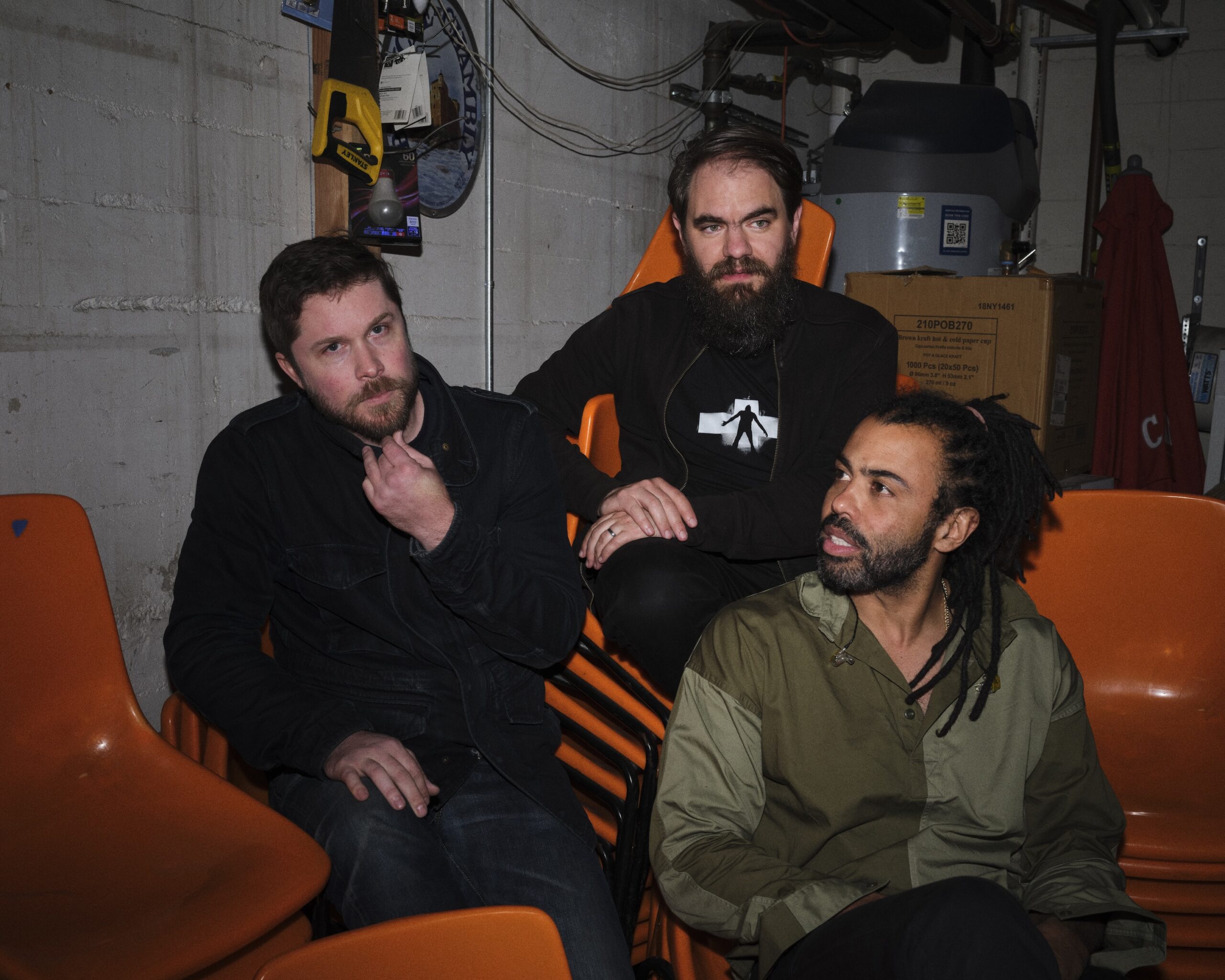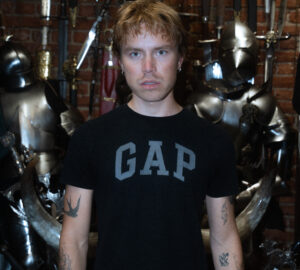Photo Credit: Iddo Goldberg
Born from the post-apocalyptic ruins of the South Bronx in the early ’70s, hip-hop was a movement of reinvention – turning obsolete technology into something fresh, tagging city walls with handmade digital-era signatures, and forging an entire artistic identity from whatever was at hand. Meanwhile cyberpunk, with its clash between high-tech corporate control (the “cyber”) and underground DIY rebellion (the “punk”), speculated on a dystopian reality of scavenger-tech aesthetics – from William Gibson’s groundbreaking Neuromancer to the Y2K phenome of The Matrix, the cyberpunk ethos was grounded in a world where digital landscapes were as real as physical ones, and human desires were inseparably intertwined with machine intelligence.
While both hip-hop and cyberpunk operated as binary stars at the close of the millennium, their influence persisted beyond that – and that’s because they both existed from repurposing the discarded remnants of a war-torn, indifferent society that just kept moving forward. Consequently, the fractured sounds of that era reflected the cyber-dystopian thrillers happening in real time – from the sweeping atmospheric synths of a Vangelis score to the frantic, electrified energy of acts like The Prodigy, Underworld, and The Crystal Method, those samples aren’t merely decorative, but stand as relics of a stolen past, reassembled into a new context.
So what would happen if someone deliberately fused both cultures into a singular artistic vision? This is the background to clipping.’s exhilarating fifth project Dead Channel Sky, an album teeming with eerie electronics, the scent of scorched circuits, and an undercurrent of digital desperation. Over Jonathan Snipes and William Hutson’s abrasive production, rapper Daveed Diggs delivers narratives of racial violence and futuristic oppression, spinning horror-laced fables of enslaved people in outer space.
With that said, the Los Angeles trio have always been as much about storytelling and philosophy as they are about beats and rhymes. Their 2016 sophomore album Splendor & Misery was only the second music project ever nominated for a Hugo Award – science fiction’s highest honour. This was followed by 2017’s The Deep, and its 2019 novella adaptation with Rivers Solomon – both envisioning an underwater society descended from enslaved people thrown overboard during the Middle Passage. Pivoting from the universally acclaimed horror-inspired diptych of 2019’s There Existed an Addiction to Blood and 2020’s Visions of Bodies Being Burned, clipping.’s cinematic lore now finds Diggs rapping with machine-like precision over distorted rave beats, constructing a cyberpunk world littered with hackers, clubbers, digital avatars, and war-torn soldiers.
Aptly titled opener Intro establishes a sense of authority, before the rave-fuelled chaos of Dominator bulldozes forward with 90s-style synth stabs and breakbeats. Run It pulses with electro-acid grit, while Change the Channel blends industrial menace with dark EBM. The lyrics paint an eerie picture of a world where code dictates reality, surveillance looms, and time itself becomes unstable. Interludes From Bright Bodies hisses like a deteriorating tape loop, while And You Called lingers in the mind like a ghostly presence. Go is a drill-like percussion assault, demanding action with a staccato barrage of commands. Mood Organ oscillates between harsh beats and melodic swells, while Polaroids layers distorted vocal samples into a ghostly haze. The overarching sound of Dead Channel Sky is unrelenting yet purposeful – every glitch and crash feels meticulously placed, even when verging on overload.
To that end, no clipping. project feels complete without melding of supporting voices; injecting fresh energy and life into their auditory storytelling. Scams pulses with a streetwise edge, with Diggs and guest MC Tia Nomore trading verses over a steady, knocking beat. Adding to the dramatic bravado of their sonic ecosystem, the computer-music collective Bitpanic contributes “plucks” to Simple Degradation, stacking noise-induced tracks that feel like consciousness reawakening after a digital crash. Madcap delivers an eerie rush of warped beats, while the Nels Cline-lead Malleus conjures imagery of neon-lit cities and chrome reflections. At the same time, the album’s cyberpunk vision extends beyond hip-hop and sci-fi music as Keep Pushing nods to acid house, and Dodger bursts with drum & bass intensity. Code samples The Last Angel of History, a 1996 Afrofuturist film exploring Black cultural lineage, further arguing the “correspondences” between hip-hop and cyberpunk as relational concepts.
Speaking to The Guardian, Hutson described this album as “a future relic – like a CD compilation you’d stumble upon in a secondhand shop, decades from now.” This sentiment becomes apparent as the album’s storytelling unfolds through a shifting cast of characters. On closer Ask What Happened, Diggs plays a socially conscious MC spitting rapid-fire accounts of historical atrocities. But on Mirrorshades Pt. 2, he transforms into a detached, nightclub elitist, enforcing a strict dress code with the line: “God is not here – he forgot to rock his mirrorshades.” These figures – genderless and deliberately ambiguous – all exist within the same capitalist dystopia, where war rages on in the background. Aided by alternative hip-hop legend Aesop Rock’s intricate wordplay, the penultimate Welcome Home Warrior plays like a military recruitment ad, its eerily enthusiastic tone directed at those seeking an escape from the cyber rat race – a track that also serves as a critique of mainstream hip-hop, which the band has periodically argued to have become constrained by its rigid emphasis on authenticity.
While clipping.’s world-building had previously followed grand, concept-driven structures, Dead Channel Sky feels more like a mixtape – an expertly assembled collection of tracks, each one paying tribute to a potential present. Its sound feels sharp and timeless, evoking a sense of déjà vu for both the past and the future – an eerie reminder of how unstable the present moment truly is. This tension between the digital and the physical lies at the heart of Dead Channel Sky, questioning whether virtual worlds are any less real than our own. Diggs reflects on its meaning: “If we’re living in the dystopia that ‘80s and ‘90s cyberpunk fiction predicted, then this is the soundtrack.”
9/10
Standout Tracks: Run It, Dodger, Welcome Home Warrior
For Fans Of: Dälek, Ho99o9, Denzel Curry
Written by: Dimitris Vasileias




